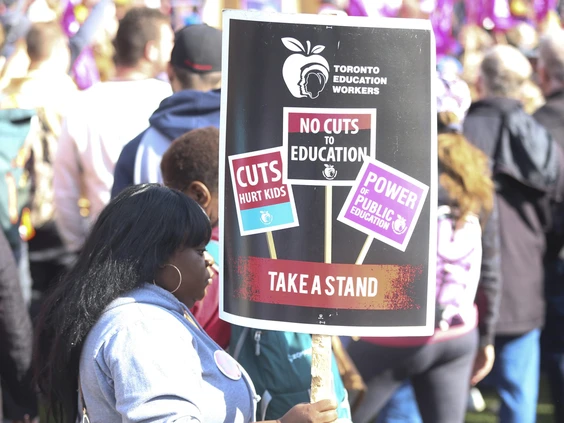Jordan Peterson, a clinical psychologist and self-described best selling author, took to the courts this summer after his professional regulator, the College of Psychologists of Ontario (CPO), sanctioned him following the receipt of various complaints regarding public comments he made on social media and in an interview he gave on the Joe Rogan Podcast.
The CPO ordered Peterson to complete a remedial program on professionalism in public statements which many have referred to as “social media training.” Peterson refused to comply and took to social media claiming that the CPO was infringing on his freedom of expression.
Peterson sought a judicial review of the decision at the Superior Court of Justice before a panel of three judges. His case was dismissed and Peterson has been ordered to pay the college $25,000 in costs. Peterson has publicly denounced the court decision.
Peterson’s case isn’t about freedom of expression at all. It is utterly sad that Canada is being cast as a country that upholds arbitrary censorship of its citizens.
Peterson is a regulated worker just like many millions of nurses, doctors, teachers, engineers, lawyers and other health care professionals. Regulated professions have codes of conduct that we all must agree to, to be invited into the profession. Peterson agreed to whatever code of conduct the CPO required of him when he became a psychologist.
Codes of conduct usually require workers to uphold some standard of professionalism. This isn’t just common for regulated workers but for many employees. Peterson agreed as part of the CPO code of conduct “to not engage publicly in degrading comments about others” and to “strive to use language that conveys respect for the dignity of persons and peoples as much as possible in all spoken, written electronic, or printed communication.” He may not like it now, but he agreed to it.
I have written many articles about how using social media outside of working hours can devastate careers. There was the 2021 case of the B.C. employees seen partying maskless during a COVID-19 lockdown that were promptly terminated. There was the executive on an Etobicoke golf course caught on video making racial slurs who was later terminated as well.
There is nothing new about employers frowning upon the online exploits of employees; often claiming that employee behaviour or language breached a code of conduct. Weren’t these employees, too, freely expressing themselves?
It comes as no surprise that a psychologist must uphold some modicum of professionalism when holding oneself out as an expert to the world.
Even though I disagree with Peterson that his case is about his right to express himself, his case raises an important point about the dangers of the overreach of professional regulation.
It may seem like the sanction imposed on Peterson is a mild one, but if Peterson undertakes the remedial program ordered by the CPO, it will be publicly recorded on his CPO record. If he refuses the training, the next step would be discipline. Either way, the ramifications are serious.
And while Peterson isn’t the perfect victim, being too outwardly brash and controversial and a non-practicing professional at that, it is undeniable that his content is doggedly followed and viewed by millions of people for free. There are many that will report they have received some benefit from the content Peterson has produced.
Many professionals use social media to connect with prospective clients and new audiences. They discuss the news, debate topics, and create hours of content. Many share intimate aspects of their lives so as to build an online persona which is increasingly important as many professional services are now solely offered virtually.
Social media is deeply enriched by the content professionals create, for free consumption. Giving regulators a precedent to parse through the online content created by professionals to then hand out potentially serous sanctions is alarming and must be done only sparingly.
Gone are the days that professionals can ignore the critical business need to have a strong online present with robust and current online content. It is a means of survival for most industries. Peterson’s court decision will leave professionals questioning their own content creation, some of which provides free access to much needed information to the general public.
Professional regulation overreach into the online world must be kept to a minimum.
Have a workplace issue? Maybe I can help! Email me at sunira@worklylaw.com and your question may be featured in a future column.
The content of this article is general information only and is not legal advice.




